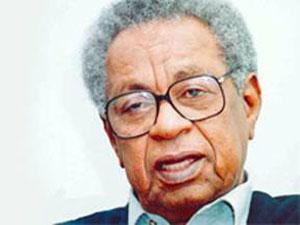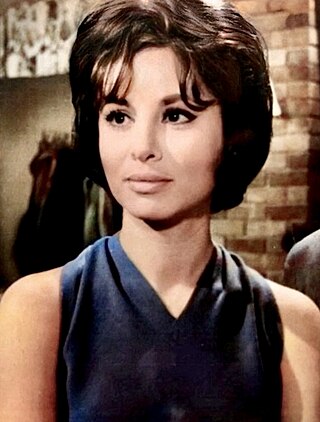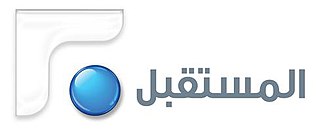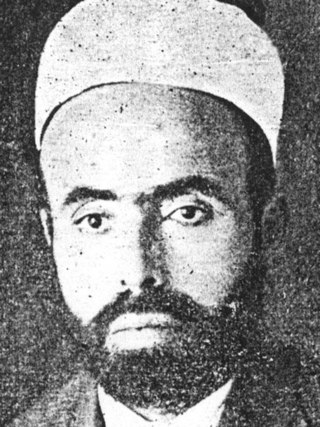Related Research Articles

Al Arabiya is a Saudi state-owned international Arabic news television channel. It is based in Riyadh and is a subsidiary of MBC Group.
The music of Lebanon has a long history. Beirut, the capital city of Lebanon, has long been known, especially in a period immediately following World War II, for its art and intellectualism. Several singers emerged in this period, among the most famous Fairuz, Sabah, Wadih El Safi, Nasri Shamseddine, Melhem Barakat, Majida El Roumi, Ahmad Kaabour, Marcel Khalife, and Ziad Rahbani, who—in addition to being an engaged singer-songwriter and music composer—was also a popular playwright. Lydia Canaan was hailed by the media as the first rock star of the Middle East.

SuperStar was an Arabic television show based on the popular British show Pop Idol created by Simon Fuller's 19 Entertainment & developed by Fremantle Media. The show unites the Arab community by democratically choosing the next singing sensation. The show is broadcast worldwide on Future TV, a Lebanese television station. It is also the first Idol franchise to feature contestants from multiple countries.

Tayeb Salih was a Sudanese writer, cultural journalist for the BBC Arabic programme as well as for Arabic journals, and a staff member of UNESCO. He is best known for his novel Season of Migration to the North, considered to be one of the most important novels in Arabic literature. His novels and short stories have been translated into English and more than a dozen other languages.

Faten Ahmed Hamama was an Egyptian film and television actress and film producer. She was the first wife of Ezz El-Dine Zulficar. She made her screen debut in 1939, when she was only seven years old. Her earliest roles were minor, but her activity and gradual success helped to establish her as a distinguished Egyptian actress. Later revered as an icon in Egyptian cinema. In 1996, nine of the films she starred in were included in the Top hundred films in the history of Egyptian cinema by the cinema critics of Cairo International Film Festival.

Future Television was a Lebanese free-to-air television station founded in 1993 by the Future Movement leader Rafik Hariri, a former Prime Minister of Lebanon. Future TV was also available via satellite in the Arab World, European Union, United States, Canada, and Australia. Politically, the channel supported the views of the Future Movement. The channel also had a sister channel, Future News, which is also defunct.
Alexander Kronemer is a writer, lecturer, and documentary filmmaker whose work focuses on religious diversity, Islam, and cross-cultural understanding. He is the co-founder and executive producer of Unity Productions Foundation. Alex Kronemer is the co-founder of Unity Productions Foundation (UPF), its Executive Director, and Executive Producer for all UPF Films. He is an internationally known speaker and has published numerous articles newspapers and journals in the US and abroad, including The Washington Post, Christian Science Monitor, the Huffington Post and in syndication in international publications as widespread as the UK, Indonesia, Egypt, and Pakistan. He frequently presents at 20,000 Dialogue events, and has appeared as a CNN commentator on several occasions. Mr. Kronemer has won numerous awards for his work in promoting peace and interfaith understanding. A graduate of Harvard Divinity School, he previously served in the U.S. Department of State’s Bureau of Human Rights and was one of the founding staff members who helped establish the U.S. Institute of Peace.
Giselle Khoury was a Lebanese-French journalist and talk show host. On her show Al Mashhad, she interviewed prominent figures and high-profile guests from the Arab world. She was married to Samir Kassir.
Ibrāhīm al-Kōnī is a Libyan writer and is considered to be one of the most prolific Arab novelists.

Cinema in Kuwait was introduced in the mid-20th century. The dominance of American cinema posed a problem in the formation of Arab cinema in general and of Kuwaiti cinema in particular. French film critic Guy Hennebelle argued that Arab intellectuals became convinced that only imitating the American culture could they overcome national decline and backwardness. This caused an absence of real Kuwaiti personality and character. However, Kuwaitis preserved their national identity by producing and broadcasting local content in their television channels. Which was a balance between protecting and preserving their national identity while also satisfying other preferences. The domination of American films and other foreign produced films has the Kuwaiti cinema imitate and depend on it for so long. In 1971, Khalid Alsidiqq directed the first Kuwaiti feature film that talks about its cultural heritage and history. Recently, the cinema industry in Kuwait employs a strong usage of local culture and tradition.
Yasser Talaat Hafez Thabet is an acclaimed Egyptian journalist and liberal writer.
Lamis Elhadidy, is an Egyptian TV presenter. She also worked for Al-Masry Al-Youm newspaper.

Sheikh Ahmed Aref El-Zein was a Shi'a intellectual from the Jabal Amil area of South Lebanon. He was a reformist scholar who engaged in the modernist intellectual debates that resonated across Arab and Muslim societies in the early 20th century. Disappointed by the lack of education and prosperity of his community under Ottoman rule, he collaborated with other local scholars on interaction with reform movements underway in Damascus, Baghdad and Cairo. By founding the monthly magazine Al-Irfan, he is credited with bringing literary edification and news of scientific innovations to his community and others across the Arab-speaking world. He published a weekly paper, Jabal Amil for a year, wrote several books and established the first printing press in South Lebanon. He promoted education for both sexes in his conservative society and helped female authors by publishing their material under their real names or pseudonyms. He was a pillar in the national Syrian-Arab movement against Ottoman rule in the later years of the Sultanate and resisted the French mandate by advocating independence for Lebanon. He sought educational reforms and the reconciliation of Islamic values with Western ideas of liberty and democracy.

Rima Maktabi is a Lebanese TV presenter and award-winning journalist who returned to al-Arabiya after hosting CNN's monthly program Inside the Middle East for two years and previously working at the Arab satellite channel since 2005. She was among several female Arab journalists who first became known through her reporting during the 2006 Lebanon War and who had successful careers afterward, including Maktabi and her former colleague at al-Arabiya Najwa Qassem.

Ahmad Ali El Zein is a Lebanese novelist, documentary film maker and television journalist. He is best known for his trilogy of novels, The Edge of Oblivion (2007), Suhbat al-Tayer (2010) and Barid al-Ghouroub (2014). He lives between Europe and the Middle East, where he shoots Rawafed, a series of documentaries on Arab intellectuals and artists broadcast on Al Arabiya News Channel

Lara Habib Chamat is a Lebanese Senior Business News presenter on Al Arabiya News Channel.

Bassem Raafat Mohamed Youssef is an Egyptian-American comedian, television host, and surgeon. Beginning his career with The B+ Show (2011), which was inspired by his experience during the 2011 Egyptian Revolution, he later rose to prominence as the host of El Bernameg (2011–2014), a satirical comedy show focused on Egyptian politics. In 2015, Youssef hosted the 43rd International Emmy Awards in New York City.
Najwa Kassem was a Lebanese journalist and television presenter (anchor) for Al Jadeed, Future TV and Al Arabiya.
Al Jazeera Arabic is a Qatari state-owned Arabic-language news television network. It is based in Doha and operated by the Al Jazeera Media Network, which also operates Al Jazeera English. It is the largest news network in the Middle East and North Africa region. It was founded in 1996 by the then Emir of Qatar Sheikh Hamad bin Khalifa Al Thani.
Alaa Aljaber is a Kuwaiti writer, playwright, and novelist, known in academic and cultural fields for his interest in children's literature.
References
- ↑ "MBC wins 10 awards at the Gulf Radio and Television Festival". AlArabiya.net. February 13, 2010.